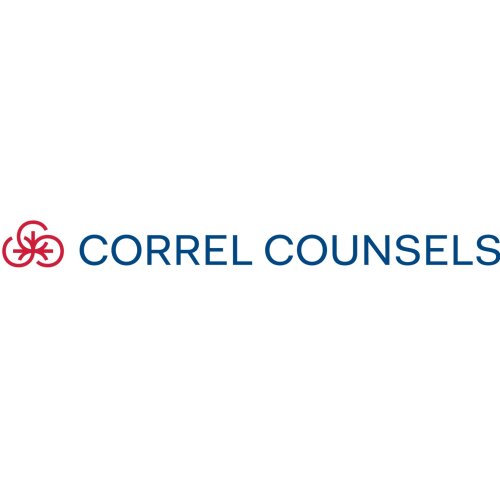Best Public-Private Partnerships (PPP) Lawyers in Maldives
Share your needs with us, get contacted by law firms.
Free. Takes 2 min.
Or refine your search by selecting a city:
List of the best lawyers in Maldives
About Public-Private Partnerships (PPP) Law in Maldives
Public-Private Partnerships (PPP) in Maldives offer a collaborative approach for the government and private sector to deliver public services or infrastructure. PPPs aim to combine the strengths of public oversight and private sector efficiency, especially for projects like airports, harbors, utilities, and social infrastructure. In Maldives, PPPs have been used to address resource and capacity limitations, drive investment, and accelerate development. Legal frameworks and regulatory conditions are designed to ensure transparency, accountability, and fair allocation of risks and rewards for all parties involved.
Why You May Need a Lawyer
Engaging in Public-Private Partnerships involves navigating complex contracts, regulatory requirements, and risk allocation. You may require legal help in situations such as:
- Drafting or reviewing PPP agreements and contracts
- Understanding compliance with government regulations and policies
- Participating in bids or tenders for government projects
- Managing disputes or renegotiations during project execution
- Addressing land use, environmental, or investment concerns
- Securing financing and ensuring contractual protections
- Ensuring alignment with foreign investment rules and local content requirements
A skilled lawyer can help safeguard your interests, provide clarity on your obligations and rights, and assist in resolving disputes throughout the PPP lifecycle.
Local Laws Overview
Public-Private Partnerships in Maldives are governed by a mix of statutory regulations, government policies, and sector-specific guidelines. Some of the key legal aspects include:
- PPP Act and Regulations: The Public Private Partnership Policy and related regulations set out criteria for eligibility, procurement procedures, approval processes, and negotiation guidelines.
- Procurement Laws: Transparent bidding and tendering processes are overseen by the National Tender Board and Ministry of Finance, including anti-corruption safeguards.
- Contractual Provisions: PPP agreements commonly address contractual duration, risk sharing, performance standards, and payment terms.
- Investment Protection: Foreign investment is regulated by the Ministry of Economic Development, ensuring security for investments and dispute resolution mechanisms.
- Sectoral Oversight: Depending on the project, additional legislation may apply, such as tourism, energy, infrastructure, and environmental regulations.
- Dispute Resolution: Contracts may specify local courts, arbitration, or other mechanisms for addressing disagreements.
It is essential to consult the latest rules, consult with experts, and conduct due diligence before entering into any PPP arrangement in Maldives.
Frequently Asked Questions
What is a Public-Private Partnership (PPP) in Maldives?
A PPP in Maldives is a legal and collaborative arrangement between a government agency and a private entity to build, operate, or manage public infrastructure or services.
Who regulates PPPs in Maldives?
The Ministry of Finance is responsible for PPP policy, while the National Tender Board oversees procurement procedures. Sector-specific ministries may also be involved depending on the nature of the project.
What types of projects commonly use PPP models?
Typical PPP projects in Maldives include infrastructure development such as airports, ports, utilities, housing, health care facilities, and waste management systems.
How is a PPP agreement in Maldives typically structured?
A PPP agreement outlines the scope of the project, duration, risk allocation, financial arrangements, performance obligations, compliance requirements, and dispute resolution mechanisms.
Can foreign companies participate in PPP projects?
Yes, foreign companies can participate in PPP projects, subject to compliance with foreign investment laws, sector policies, and local partner requirements.
What are the main risks in a PPP project?
Typical risks include construction delays, cost overruns, regulatory changes, demand fluctuations, payment defaults, and unforeseen environmental or land issues.
What dispute resolution methods are available?
Parties often specify arbitration, mediation, or litigation in Maldivian courts for resolving disputes arising from PPP contracts.
How can a PPP project be terminated?
Termination procedures are set out in the contract and usually specify causes such as breach, insolvency, force majeure, or mutual consent, along with termination payments or compensation provisions.
What legal obligations must private partners fulfill?
Private partners must comply with contract terms, local laws, environmental standards, financial reporting, and any additional sector-specific requirements.
Do PPP projects get any incentives or government support?
While government support varies based on the project, incentives may include land grants, tax holidays, guarantees, or viability gap funding under specific policies or negotiations.
Additional Resources
If you need further information or assistance, consider reaching out to the following:
- Ministry of Finance - PPP Division: Provides guidance, policy documentation, and resources on PPPs.
- National Tender Board: Information about bidding, tender notices, and procurement guidelines.
- Ministry of Economic Development: Advice on investment regulations, foreign participation, and business registration.
- Maldives Arbitration Centre: Dispute resolution services relevant to PPP contracts.
- Law firms specializing in corporate, commercial, and infrastructure law in Maldives.
Next Steps
If you are considering participation in a PPP project in Maldives or facing legal issues related to a PPP agreement, here are some practical steps you can take:
- Identify the specific PPP opportunity or legal issue you are facing.
- Collect all relevant documentation, including contracts, correspondences, and regulatory notices.
- Research current laws and regulations governing PPPs in the relevant sector.
- Contact a qualified lawyer or legal firm with experience in PPPs and Maldivian business law.
- Arrange an initial consultation to discuss your needs and understand your rights and obligations.
- Follow professional legal advice to safeguard your interests throughout the project lifecycle.
- Stay updated on changes in laws, policies, and regulations that may impact your PPP project.
Taking these steps can help ensure you enter PPP arrangements with clarity, confidence, and legal protection.
Lawzana helps you find the best lawyers and law firms in Maldives through a curated and pre-screened list of qualified legal professionals. Our platform offers rankings and detailed profiles of attorneys and law firms, allowing you to compare based on practice areas, including Public-Private Partnerships (PPP), experience, and client feedback.
Each profile includes a description of the firm's areas of practice, client reviews, team members and partners, year of establishment, spoken languages, office locations, contact information, social media presence, and any published articles or resources. Most firms on our platform speak English and are experienced in both local and international legal matters.
Get a quote from top-rated law firms in Maldives — quickly, securely, and without unnecessary hassle.
Disclaimer:
The information provided on this page is for general informational purposes only and does not constitute legal advice. While we strive to ensure the accuracy and relevance of the content, legal information may change over time, and interpretations of the law can vary. You should always consult with a qualified legal professional for advice specific to your situation.
We disclaim all liability for actions taken or not taken based on the content of this page. If you believe any information is incorrect or outdated, please contact us, and we will review and update it where appropriate.
Browse public-private partnerships (ppp) law firms by city in Maldives
Refine your search by selecting a city.

















